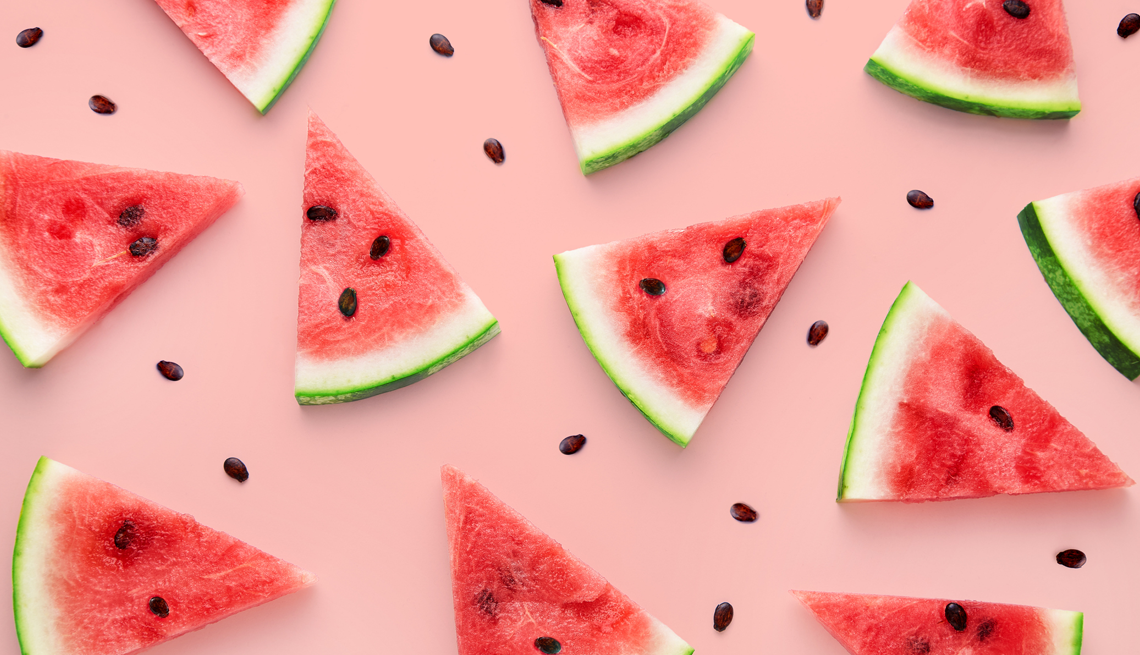3. Lowers blood pressure
L-citrulline, an amino acid you’ve probably never heard of, helps keep your blood vessels in good condition—and watermelon might be the best food for it.
In 2021, researchers compared previous studies on how watermelon and citrulline affect cardiometabolic health. Eight papers looked at blood pressure. Seven of them looked at: Eating watermelon flesh, juice, and extract can:.
Citrulline is “very good for your blood vessels,” Cassetti says. “It keeps them flexible, allows blood to flow freely, and is ideal for not getting hard and sludgy.”
As with the skin and eyes, multiple nutrients contribute here, including lycopene, which also helps manage high blood pressure. Additionally, watermelon contains potassium, which can help counteract the high blood pressure effects of consuming too much sodium.
4. Improve your diet
They’re called watermelon for a reason: this fruit is 92 percent water. Thanks to that water content, two cups contain just 90 calories. Still, it’s packed with a variety of nutrients. Plus, research suggests that adding watermelon to your diet may contribute to an overall healthier diet.
A 2022 study published in the journal Nutrients found that people who ate watermelon had significantly healthier diets than those who didn’t: They consumed less unhealthy fats and added sugars, and had higher intakes of dietary fiber, magnesium, potassium, nutrients like vitamins A and C, and antioxidants like lycopene and beta-carotene.
In another study, Watermelon may help you eat less overallIn the study, a group of overweight or obese subjects enjoyed two servings of watermelon each day for four weeks. After a break, the subjects ate a calorie-equivalent cookie each day for another four weeks. Although the calories in the two snacks were the same, subjects’ weight increased after one month of eating the cookies and decreased after eating the watermelon. Subjects said they felt full up to two hours after eating the melon, but not 20 minutes after eating the cookies.
According to McKay, that’s probably due to the combination of fiber and water in watermelon. First, fiber slows down the absorption of sugar in the body. “At the same time, the combination of fiber and water in watermelon adds bulk to your stomach, making you feel fuller for longer, which in turn reduces your appetite,” McKay says.
